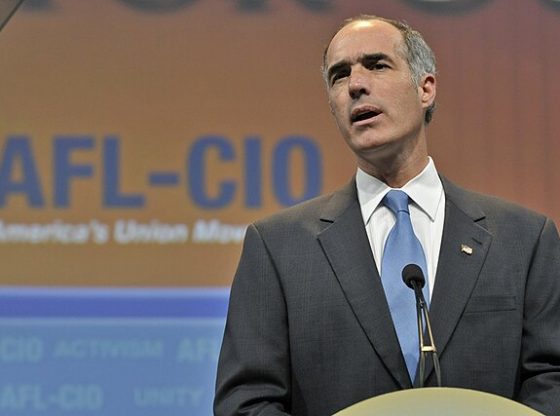Senate Judiciary Committee chair Dick Durbin again put off, for the second time, a scheduled vote on issuing subpoenas to two wealthy conservatives as the next step in Democrats’ Supreme Court ethics probe.
Durbin canceled a Thursday meeting where the committee was scheduled to vote on the subpoenas for billionaire Harlan Crow, a close friend of Justice Clarence Thomas, and conservative activist Leonard Leo, executive vice president of The Federalist Society. Last week, Durbin abruptly adjourned a hearing before the committee could vote on the motion after Republicans introduced a slew of counter-subpoenas as amendments.
Republicans’ amendments included issuing subpoenas to Justice Sonia Sotomayor’s staff, a proposal sparked by an Associated Press report that her staff assisted in arranging speaking engagements for and pressuring hosts to to purchase her books, and issuing a subpoena to Democrat-linked consultant firm Arabella Advisors.
Republican Texas Sen. John Cornyn also intended to introduce an amendment to subpoena George and Alex Soros on “information related to their efforts to influence the composition of the U.S. Supreme Court and matters before the Court,” one of his aides told the Daily Caller News Foundation last week.
Durbin said after last week’s hearing that it was unable to be completed “due to scheduling issues.” He also told NBC News reporter Frank Thorp V that they just “didn’t have time” to go through the “88 amendments” filed the night before.
Democrats announced their intention to issue the subpoenas in late October.
The Supreme Court officially adopted a Code of Conduct for the first time on Monday. All nine justices signed onto a statement explaining that they were issuing the Code to “dispel” the misunderstanding that they “regard themselves as unrestricted by any ethics rules.”
“For the most part these rules and principles are not new: The Court has long had the equivalent of common law ethics rules, that is, a body of rules derived from a variety of sources, including statutory provisions, the code that applies to other members of the federal judiciary, ethics advisory opinions issued by the Judicial Conference Committee on Codes of Conduct, and historic practice,” the justices wrote in a statement.
Durbin said on the Senate floor Monday that the code was a step in the right direction but still falls short, as it “does not appear to contain any meaningful enforcement mechanism.”
Durbin did not immediately respond to request for comment on the reason for canceling the Thursday meeting.
Katelynn Richardson on November 16, 2023
















